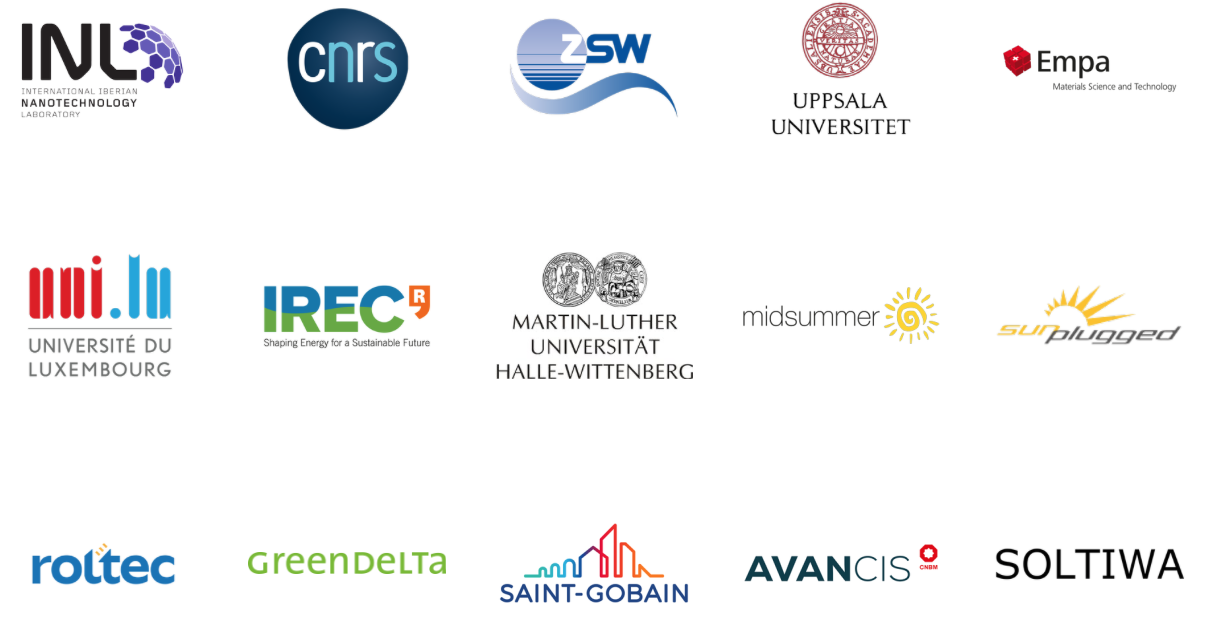Hi-BITS
High efficiency bifacial thin film chalcogenide solar cellsAbout the project

Copper indium gallium selenide (CIGS) solar cells have achieved an impressive 23 % efficiency when equipped with a metallic back contact, demonstrating excellent stability. CIGS technology shows great promise for further development and enhancement. The EU-funded Hi-BITS project has set its sights on creating a groundbreaking device structure that incorporates both photon recycling and high bifaciality. This innovative structure is expected to boost CIGS efficiency to a remarkable 25 %. Based on this, the project will develop four new applications that harness the benefits of bifaciality and other integrated features to further enhance efficiency. In addition, Hi-BITS will strive to enhance existing components to overall increase efficiency, making these solar cells well-suited for various applications, including building integration, vehicles, and agriculture.
The core of the project:
- Building blocks for new CIGS architectures (WP2)
- High-performance solar cells with bifaciality and/or advanced light management (WP3)
- Reduction in cell-to-module efficiency loss and process monitoring (WP4)
- Application prototypes and road map for upscaling (WP5)
- Device/module real-life characterisation for reliability and energy yield assessment (WP6)
- Sustainability and compliance of new specific applications (WP7)
Background
- Hi-BITS is committed to changing the European photovoltaic ecosystem by developing a new device architecture, targeting 25% power conversion efficiency.
- The innovative approach will boost the thin-film manufacturing industry by enabling bifacial, ultra-thin, semi-transparent and tandem CIGS solar cells.
- The consortium aims at demonstrating the 3-year journey results at the prototype level, showcasing higher efficiency, lower raw material consumption, shorter and well-controlled processes, better module technologies and novel applications.
- Modules for these new applications will be outdoor tested in three different European climates, demonstrating higher energy yield and stability. Life cycle analysis and costing, considering aspects of circularity, will underline the superior sustainability of these new modules.
- The project consortium brings together leading European organisations in research on thin-film PV technologies and key industrial players in the thin-film PV value chain.
GreenDelta in the project
GreenDelta is work package for sustainability and compliance of new specific applications as well as task leader for sustainability hot spot screening, life cycle assessment and life cycle costing for the solar module prototypes. GreenDelta will develop new life cycle models and life cycle data sets for different PV products, following ISO 14040/44 standards and rules of the Product Environmental footprint of the European Commission. Together with the partners, results are developed in an agile manner, so that they can be shared in the project, to steer potential product development details and sustainable decision making. Furthermore, solar modules from the project will be assessed for circularity by calculating existing and further developing new circularity indicators in openLCA. GreenDelta will publish created data sets at the end of the project.
Partners
Centre National de la Recherche Scientifique (CNRS), France
Zentrum für Sonnenenergie- und Wasserstoff-Forschung (ZSW), Germany
Uppsala Universitet, Sweden
Université du Luxembourg, Luxembourg
Fundacio Institut de Recerca de l’Energia de Catalunya (IREC), Spain
Martin-Luther-Universität Halle-Wittenberg, Germany
Midsummer AB, Sweden
Sunplugged GmbH, Austria
ROLTEC sp. z o.o., Poland
GreenDelta GmbH, Germany
Saint Gobain Recherche SA, France
AVANCIS GMBH, Germany
Eidgenössische Materialprüfungs- und Forschungsanstalt (EMPA), Switzerland
SOLTIWA AG, Switzerland

Links and resources
Project duration: 2023 – 2024
Website: https://www.hi-bits.eu
LinkedIn: https://www.linkedin.com/company/hi-bits-project
EU portal: https://cordis.europa.eu/project/id/101122203
Funding Scheme: European Commission, HORIZON Research and Innovation Actions (RIA)